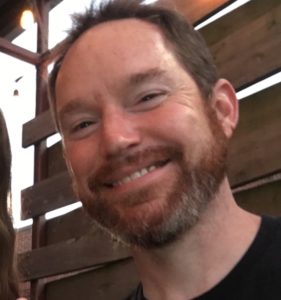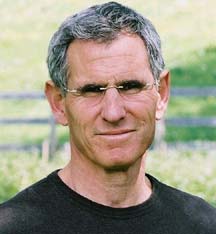There are so many terms in the English language that fall flat from the weight of excessive baggage and unfortunate associations, but we’re especially hampered when discussing what theologian Paul Tillich called our “ultimate concern”—namely religion/spirituality. You see I’ve already blown it, putting the words together like that with a slash. Of the two, I prefer the word “religion”, because of its etymological elegance [re (again) + ligare (bind, connect) = “to reconnect”]. “Spirituality” evokes images of ghosts and New Age bookstores, and to me sounds a bit wishy-washy and disembodied. But then again, in terms of common usage (and practice), “religion” hardly seems connected at all to the cultivation of rarefied states of being.
For my money, the best adjective we have available when talking about experiences of the farthest reaches of human consciousness is not religious, spiritual, or mystical, but rather transpersonal—a term probably first used by William James, but nonetheless later associated with the likes of Abraham Maslow and Carl Jung. Unfortunately, Maslow’s bold vision of establishing a fully rational yet visionary branch of psychology to explore what he called peak experiences has, in my opinion, failed to live up to its promise. As in the human potential movement in general, once the originators and visionaries of humanistic and transpersonal psychology (Maslow, Rogers, Jung, et al) passed away, those who took the baton lost their grip and fumbled it. Perhaps they’ve gone too far in their commitment to define themselves as “outside the mainstream”, but whatever the case, the field has come to embrace too many fuzzy-minded New Age theories and practices, making it hard for a hyper-rational guy like me to stand behind it. But that’s another blog post.
Ironically, one of the people who I think is doing the best job of articulating a rational approach to transpersonal experience is the “New Atheist” Sam Harris. Harris has appeared so often in the media since his book The End of Faith came out in 2005, it’s easy to form an opinion about him without having actually read this signature work of his. But those who have read it will have noticed his strong affirmation of transpersonal experience in the book’s final chapter (Experiments in Consciousness). What I appreciate most about Harris’s approach is the way he demystifies spiritual experience by talking about in terms of attention and well-being:
“At the core of every religion lies an undeniable claim about the human condition; it is possible to have one’s experience of the world radically transformed. Although we generally live within the limits imposed by our ordinary uses of attention—we wake, we work, we eat, we watch television, we converse with others, we sleep, we dream—most of us know, however dimly, that extraordinary experiences are possible.”
So the distinction between our everyday personal experiences and the more extraordinary, deep, trans-personal experiences (experiences most of us have at least glimpsed and that give us the feeling of being connected to something greater than or beyond or transcendent to the confines of our personal egos) is simply a matter of how we use our attention. As Jon Kabat-Zinn has done in his work with mindfulness-based stress reduction (MBSR), Harris articulates the essence of spiritual practice (namely Buddhist-style meditation, which Harris has studied and practiced for many years) in universal, common-sense terms, stripped of religious and traditional associations:
“[Meditation] merely requires that a person pay extraordinarily close attention to his moment-by-moment experience of the world. There is nothing irrational about doing this. In fact, it constitutes the only rational basis for making detailed claims about the nature of our subjectivity. Through meditation, a person can come to observe the flow of his experience with remarkable clarity, and this sometimes results in a variety of insights that people tend to find both intellectually credible and personally transformative.”
While Harris makes it clear that experimenting with different methods of modifying our habitual uses of attention is very much a worthwhile endeavor, he takes pains to stress that such a project does not, in principle, need to have anything to do with either religious or New Age belief systems:
“The history of human spirituality is the history of our attempts to explore and modify the deliverances of consciousness through methods like fasting, chanting, sensory deprivation, prayer, meditation, and the use of psychotropic plants. There is no question that experiments of this sort can be conducted in a rational manner. Indeed, they are some of our only means of determining to what extent the human condition can be deliberately transformed. Such an enterprise becomes irrational only when people begin making claims about the world that cannot be supported by empirical evidence.”
So there you have it. One of the “Four Horsemen” (along with Richard Dawkins, Christopher Hitchens, and Daniel Dennett) of the so-called New Atheist movement spent the final chapter of his religion-trashing opus validating spiritual—er I mean transpersonal—experience! In fact, the book’s concluding paragraph, from which the title was extracted, could have been written by Maslow himself. Well, except for maybe the final sentence:
“While spiritual experience is clearly a natural propensity of the human mind, we need not believe anything on insufficient evidence to actualize it. Clearly, it must be possible to bring reason, spirituality, and ethics together in our thinking about the world. This would be the beginning of a rational approach to our deepest personal concerns. It would also be the end of faith.”
I’m looking forward to reading Harris’s latest work, The Moral Landscape, as it promises to flesh out his vision of an appropriately 21st century pursuit of global well-being. Now that’s a project I have no trouble standing behind.







 Earlier this week one of my former professors,
Earlier this week one of my former professors,  I recently listened to
I recently listened to